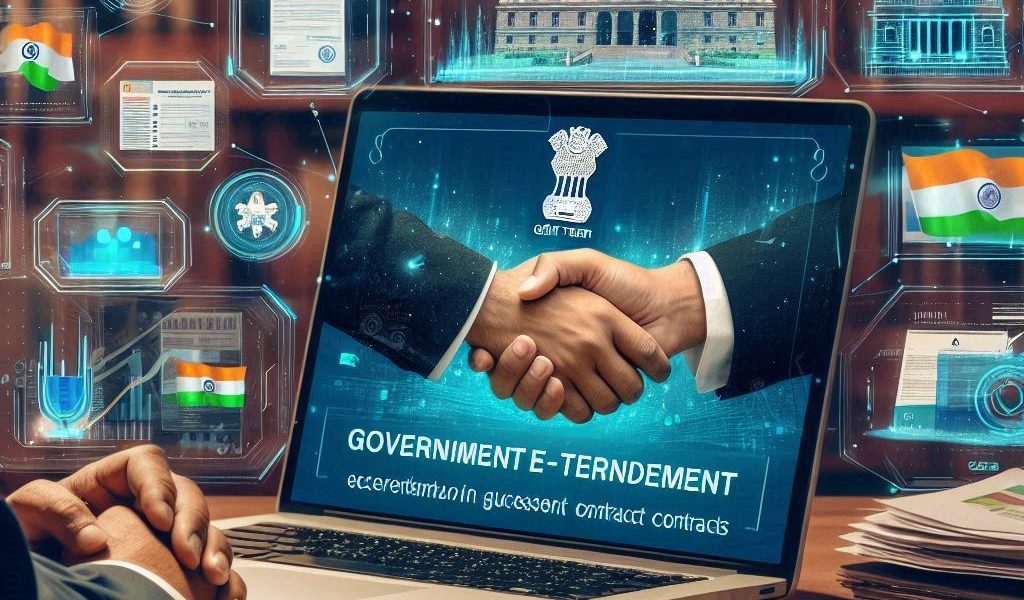Introduction
Winning government tenders can be a game-changer for startups and MSMEs in India. The government is one of the largest buyers of goods and services, and securing a government contract provides not only financial stability but also credibility and long-term business opportunities.
To support small businesses, the Indian government has introduced several policies and initiatives that encourage startups and MSMEs to participate in public procurement. Platforms like the Government e-Marketplace (GeM) and the Central Public Procurement Portal (CPPP) have simplified the tendering process, making it more transparent and accessible.
This guide will help you understand how to apply for government tenders, eligibility criteria, required documents, and strategies to win tenders successfully.
Why Should Startups & MSMEs Apply for Government Tenders?
Participating in government tenders offers several benefits:
✅ Stable Revenue Source: Government contracts provide consistent income and long-term business relationships.
✅ Credibility & Trust: Working with government agencies enhances business reputation and trustworthiness.
✅ Financial Security: Unlike private contracts, payments from government projects are more secure.
✅ Growth & Expansion: Winning tenders can lead to more opportunities in the public and private sectors.
✅ Special Benefits for MSMEs: MSMEs receive exclusive benefits under the Public Procurement Policy, including exemptions from Earnest Money Deposit (EMD) and preferential treatment in bidding.
Types of Government Tenders
Government tenders are broadly categorized into:
1. Open Tenders (Public Tenders)
- Available for all eligible businesses.
- Advertised publicly on government portals.
- Competitive bidding process.
2. Limited Tenders
- Issued to selected vendors based on previous work experience or recommendations.
- Not open for public bidding.
3. Single Tender (Direct Purchase)
- Given to a specific vendor due to proprietary rights or urgent requirements.
4. Two-Stage Bidding
- Used for complex projects requiring detailed proposals.
- Includes technical evaluation first, followed by financial bidding.
5. e-Procurement Tenders
- Conducted entirely online through government portals like GeM and CPPP.
Eligibility Criteria for Startups & MSMEs
To participate in government tenders, startups and MSMEs must meet certain eligibility requirements:
🔹 Must be registered as a startup/MSME under the Startup India or Udyam Registration portal.
🔹 Should have a valid GST registration and PAN card.
🔹 Must have a minimum business experience, depending on the tender requirements.
🔹 Should meet technical and financial criteria as specified in the tender.
🔹 Some tenders require previous experience, but many MSME-focused tenders allow new businesses to participate.
Step-by-Step Guide: How to Apply for Government Tenders
Step 1: Register Your Business on Government Portals
To participate in tenders, startups and MSMEs must register on relevant platforms:
🔹 Government e-Marketplace (GeM): https://gem.gov.in – GeM allows startups to list their products/services and bid for government contracts.
🔹 Central Public Procurement Portal (CPPP): https://eprocure.gov.in – Used for online tendering and bidding.
🔹 MSME Sambandh Portal: https://sambandh.msme.gov.in – Helps MSMEs track government tenders and procurement policies.
🔹 eTendering Portals of State Governments: Different states have their own e-tendering portals for local tenders.
Step 2: Search for Relevant Tenders
Once registered, look for tenders that match your business capabilities:
🔎 Visit the portals mentioned above and use filters like industry type, product category, and location.
🔎 Subscribe to tender alert services to receive notifications for relevant tenders.
🔎 Study past awarded tenders to understand pricing trends and requirements.
Step 3: Prepare Necessary Documents
To apply for government tenders, you need the following:
✅ Company Registration Certificate (Udyam/MSME/Startup India)
✅ GST Registration & PAN Card
✅ Bank Solvency Certificate (if required)
✅ Financial Statements (Audited balance sheets, IT returns)
✅ Technical Proposal (Capabilities, experience, past projects)
✅ Bid Security (EMD) & Tender Fee (MSMEs are often exempted)
Make sure all documents are up-to-date and properly formatted.
Step 4: Submit Your Bid
Once you have the required documents:
📌 Read the tender carefully and ensure compliance with all requirements.
📌 Prepare your bid document including financial and technical proposals.
📌 Upload the documents on the respective portal before the deadline.
📌 Track the bid status and respond to any queries from the tendering authority.
Tips to Win Government Tenders
🔹 Understand the Requirements: Carefully read the tender documents and ensure compliance.
🔹 Competitive Pricing: Your bid should be cost-effective but not too low to compromise quality.
🔹 Highlight Your Strengths: Showcase expertise, past projects, and certifications.
🔹 Leverage MSME Benefits: Take advantage of exemptions and preference policies.
🔹 Partner with Larger Firms: If you lack experience, consider joint ventures (JVs) or sub-contracting opportunities.
🔹 Improve Digital Presence: Many tenders require digital validation—having a strong online presence helps.
🔹 Maintain Good Relationships: Engage with procurement officers and industry bodies for networking.
MSME Benefits in Government Tenders
Under the Public Procurement Policy for MSMEs, the government provides:
🎯 Exclusive Access to 25% of Government Tenders – A minimum of 25% of government purchases are reserved for MSMEs.
🎯 Exemption from Earnest Money Deposit (EMD) – MSMEs do not need to pay a security deposit in many tenders.
🎯 Price Preference for MSMEs – If an MSME’s bid is within 15% of the lowest bid, they get a chance to match the lowest price and win the contract.
🎯 Ease of Compliance – MSMEs have relaxed criteria for financial and technical requirements in many tenders.
Conclusion
Winning government tenders can provide startups and MSMEs with significant business opportunities, helping them grow and gain credibility in the market. By leveraging government schemes, digital platforms like GeM, and strategic bidding techniques, small businesses can successfully enter the public procurement ecosystem.
With the right strategy, documentation, and pricing approach, startups and MSMEs can compete effectively, secure contracts, and scale their operations. 🚀




